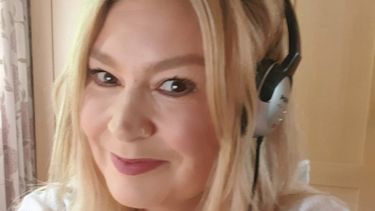Journalism as the Fourth Emergency Service, published by Peter Lang, provides chapters with findings from current academic research accompanied by accessible teaching resources to help journalism students, professionals and media organisations better understand and address emotional distress.
The book covers:
Firsthand trauma: Experiencing and witnessing trauma events you may encounter when reporting from the scene. This immersive trauma also applies to camera crews and photographers.
Vicarious trauma: Secondhand trauma that can be felt through consistent exposure to distressing material, emotional interviews and graphic details. This can include court reporting, and is often felt by video and picture editors who often must trawl through disturbing imagery.
Cyber-triggered trauma: Trauma from exposure to online bullying, harassment and abuse from the public. This is especially prevalent amongst women, diverse and marginalised communities.
The book has been awarded open access funding from Knowledge Unlatched given its significant contribution to the field. This means access online is free of charge.
Dr Emma Heywood is a Senior Lecturer in the School of Journalism, Media and Communication at the University of Sheffield. She works extensively in conflict-affected countries researching radio and radio journalism.
She said: Journalists throughout the world are increasingly working in situations where trauma, in one form or another, dominates. Whilst journalists’ physical and psychological reactions to trauma may be similar, cultural understandings of trauma differ and coping strategies may not be in place. Indeed, in many parts of the world, trauma may be stigmatised within society and mental health disorders are not acknowledged. This book not only provides wide-ranging accessible trauma resilience resources for students, professionals and educators, but also offers experiences from multiple environments and countries to enable readers to better understand, recognise and address trauma in journalism.
Lisa Bradley is a Senior University Teacher in the School of Journalism, Media and Communication at the University of Sheffield and former journalist. She has won three National Council of Training for Journalists awards for innovation in teaching and three University of Sheffield education awards for her work in trauma and resilience training.
She said: “The trauma experienced by journalists is more prevalent than ever - not limited to war and foreign correspondents, but court reporters, regional reporters, local reporters - who experience everyday distress from being at the coal front of raw human emotion day in day out, while under extreme pressure to deliver on every platform, to increase page views, to be a “brand”. Exhaustion, post-traumatic stress, and emotional burnout is forcing the next generation of training journalists to leave the industry - a massive threat to democracy. We want this book to not only shed light on this shady side of the industry, but as a toolkit to editors, reporters, and journalism educators to help build resilience and protect the future of newsrooms.
The e book can be downloaded for free here : https://www.peterlang.com/document/1311903
Endorsements
“In this increasingly complex and challenging world, there is a real need to consider extra mental health support for journalists. This book is a very valuable addition to that debate.”
Ian MacGregor, Editor Emeritus at the Telegraph and Chair of the Society of Editors.
“Journalists head towards danger when everyone else is running away. They see things that are the stuff of nightmares. They can be viciously trolled for telling the truth. The work is exciting and important— but there can be a heavy price to pay in trauma that can last a lifetime. This important book is essential reading for journalists and those concerned about their welfare.”
Jonathan Grun, Emeritus Editor, Press Association.
"A well researched insightful read for anyone wanting to enter the journalism industry. Emma and Lisa have carefully crafted the perfect guide to navigate new journalists into the new and ever changing world. Their understanding and acknowledgement for the struggles and difficulties faced make an insightful and honest read about what to expect before entering any newsroom. I wish I had this before becoming a journalist."
Katie Ridley, ITV
“An essential read for journalists at all stages of their career, this book is an invaluable resource for navigating the challenges both in and beyond the newsroom. It provides much-sought-after guidance that reporters have been yearning for, blending research-based insights with actionable advice - and will be beneficial for trainees and seasoned professionals alike.”
Harriet Rose Gale, Head of Features (Digital and Print), SWNS Media Group.
"We're seeing a sharp increase in journalists worldwide coming forward for trauma reporting training and sharing their anxiety around covering emotionally distressing stories. This book is incredibly timely, and will enlighten and support journalists to do their job to the best of their ability, both in the classroom and in the field."
Jo Healey, BBC and trauma expert




